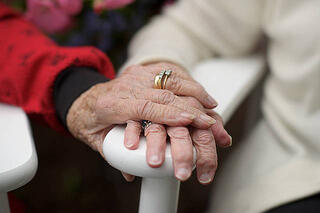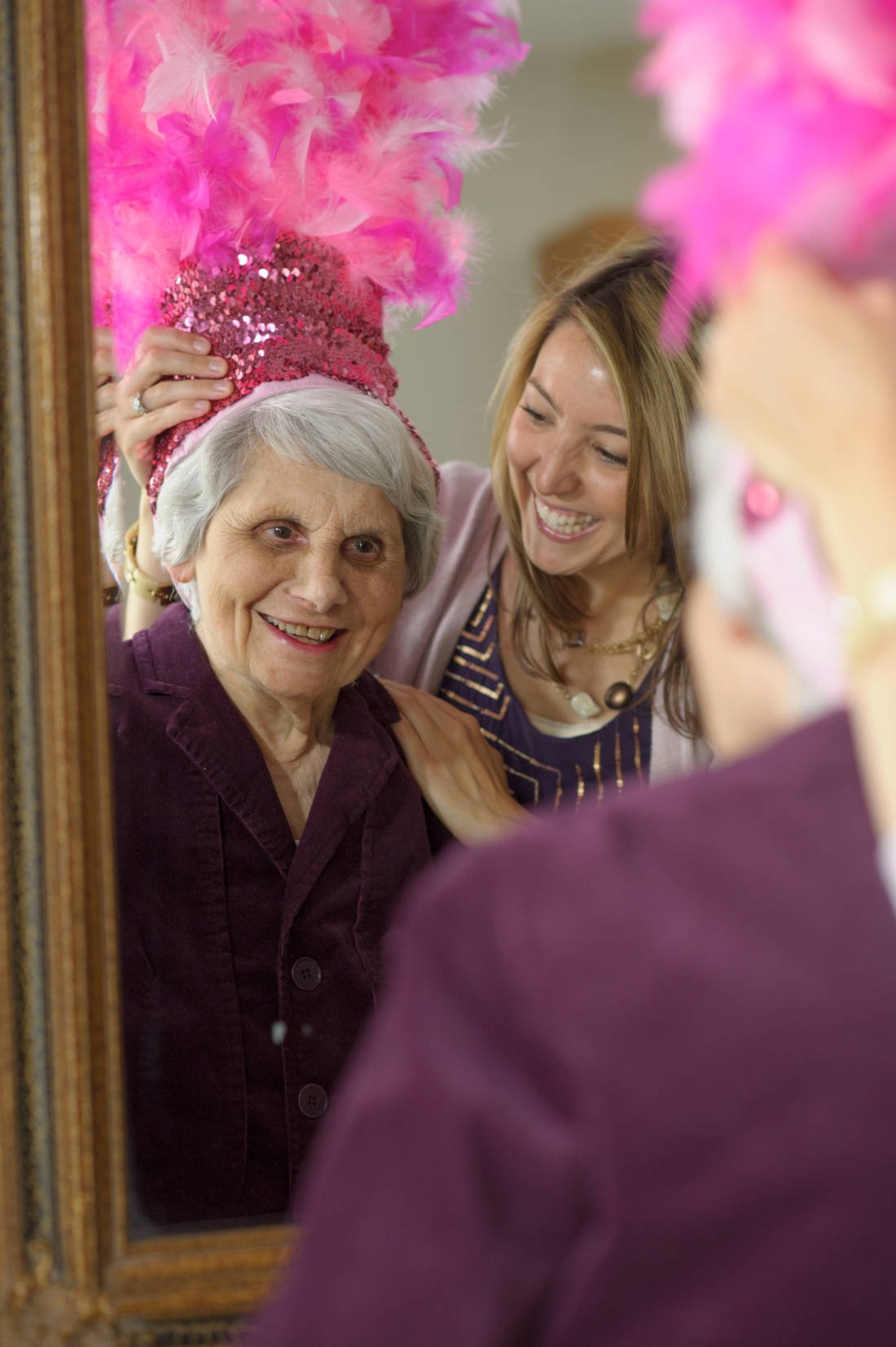How to Cope When Your Loved One Needs Hospice Care
 Receiving the news that your aging loved one has a limited life expectancy is one of life’s most difficult events. No matter how prepared you think you may be for the diagnosis, learning that hospice is the next step can take your breath away. However, while hospice is never easy, many people find that it offers a positive approach to dealing with end-of-life matters. Let’s take a closer look at hospice care, along with how it can help patients and caregivers alike cope during difficult times.
Receiving the news that your aging loved one has a limited life expectancy is one of life’s most difficult events. No matter how prepared you think you may be for the diagnosis, learning that hospice is the next step can take your breath away. However, while hospice is never easy, many people find that it offers a positive approach to dealing with end-of-life matters. Let’s take a closer look at hospice care, along with how it can help patients and caregivers alike cope during difficult times.
Understanding Hospice
There are many misconceptions about what hospice is. The first step in coming to terms with hospice lies in understanding its true purpose. According to the Hospice Foundation of America (HFA), hospice is a form of medical care with the alternate goal of "maintaining or improving quality of life for someone whose illness, disease or condition is unlikely to be cured.”
While each patient’s needs are different, hospice care may typically include the following services for patients:
- Visits from the healthcare team, which may include doctors, nurses, social workers, home-health aides, and spiritual advisors
- Medication for pain and symptom management
- Medical equipment and supplies
- Physical and occupational therapy
- Nutritional counseling
- Temporary inpatient care
With hospice, care is provided in the patient's “home” setting -- whether in a private residence, skilled nursing facility, or even a hospital room. Hospice care does not typically include treatment aimed at curing a terminal illness; nor does it include room and board at a skilled nursing facility or hospice residential facility, emergency room care, or ambulance transportation.
While hospice was once primarily the domain of people with cancer, today hospice serves patients living with numerous end-stage diseases, including heart, kidney and lung disease as well as dementia. In addition to offering services for adults, hospice also serves children and their families.
Another hospice-related misconception assumes that death is imminent when hospice is recommended. In fact, taking advantage of hospice before the final days or weeks of life allows caregivers and patients to benefit from the full range of hospice services.
Hospice for Caregivers
In addition to serving patients, hospice also offers a valuable support network for family members and caregivers during this particularly stressful time of life.
And while caring for a loved one in hospice is a life-changing responsibility which may require unprecedented levels of physical, emotional and spiritual involvement, hospice programs can offset these challenges by providing both grief counseling and temporary respite care for caregivers and loved ones.
Ultimately, hospice has the potential not only to ease the caregiver’s burden, but also to provide rare comfort during an unthinkably difficult time. According to David McGrew, MD, chief of medical services for Hudson, Florida’s HPH Hospice, "There's dying well, and there's not dying well, and not dying well is having life consumed by distressing symptoms and not being able to take care of important emotional and social issues, financial affairs, and maybe even bucket list items if you are up for them.” For many patients and caregivers alike, hospice offers an unexpected window into sharing their remaining time together in the most meaningful way.
Key Takeaways
- While hospice is not aimed at curing illness, it still offers benefits for patients and caregivers.
- In addition to caring for the body, hospice is equally concerned with the mental and spiritual health of patients and their loved ones.
- Receiving a hospice recommendation can be overwhelming, but understanding the nature of hospice can help patients and caregivers alike work through the difficult circumstances.
About Marissa Salvesen
My journey into the world of senior living began when I started working for United Methodist Homes in 2010. Starting as an Activities Director at one of our award-winning assisted and independent living communities and then transitioning to Marketing and Promotions Manager for UMH, I now work as the Manager of Mission Development, fostering the Mission and Values of our organization. I love sharing stories about the many ways we build meaningful relationships and enrich the lives of those we serve, and am proud to be part of building UMH’s 140-year legacy of caring. Wondering what makes our communities such special places to live and work? Connect with me and find out!

Our Blog is a 2016 Platinum Generations Award Winner! The Generations Award is an annual international competition for excellence in senior marketing recognizing professionals who have communicated to the 50+ Mature Markets.




